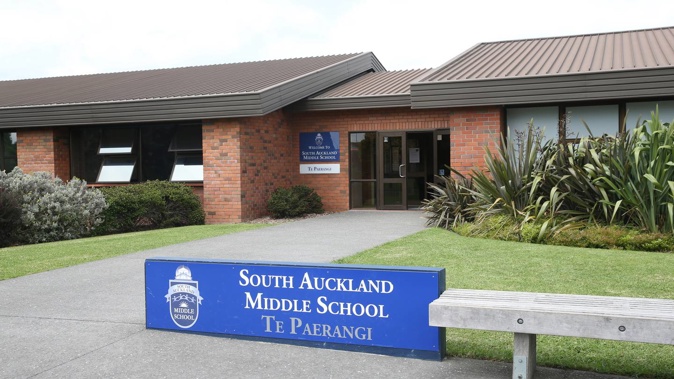
This story has been substantially amended since it was first published.
The Auditor-General has strongly criticised a school board that paid $450,000 to a trust on which its members were trustees - and was unable to clearly show what it was spent on, who authorised it or how the fee was determined.
Villa Education Trust was the sponsor of two charter schools, South Auckland Middle School and Middle School West Auckland. When the Labour government abolished charter schools, the Minister of Education appointed an establishment board to transition the two schools into the state school system.
The establishment board and the Villa Education Trust had the same members - who were effectively "wearing two hats", Auditor General John Ryan said in his report into the matter.
During the transition process, the Establishment Board paid Villa Education Trust $450,000 in management fees for the administration and management services required for the schools to open as designated character schools, Ryan's report said.
An inquiry was launched after the school's auditor was unable to obtain sufficient, appropriate audit evidence to determine how much of the $450,000 payment was valid expenditure.
Ryan's office found that while it was reasonable for the board to engage the trust in the work and they had valid reasons to do so, they did not follow good procurement practice and there was not enough documentation to assure the public it was getting value for money.
In addition, "the board failed to recognise that a conflict of interest arose when they effectively decided to pay money to themselves, and this meant they took no steps to manage the conflict", Ryan said.
"In a situation like this, we expect a public organisation to recognise the conflict and put a process in place to manage it."
The Ministry of Education told the OAG that it had no reason to question whether the board and trust had acted in good faith. But there were insufficient records relating to how they determined and paid the $450,000 management fee or to how they dealt with conflicts of interest.
The auditor had noted that the amounts charged were "significantly higher than normally seen in other schools under similar circumstances", the report said.
The trust maintains it handled the process "prudently, appropriately and with strong governance protocols" but has admitted its documentation could have been better.
Ryan said the Establishment Board, like any public organisation, was accountable to the public and Parliament for how it spent the public money entrusted to it.
The board had still been unable to provide the auditor general "with sufficient assurance about the circumstances in which the fee was determined and paid, and about what exactly has been provided in exchange".
"I expect more from a public organisation spending public money.
"The circumstances of this payment create a perception of a lack of integrity. Acting with integrity, and being seen to act with integrity, are fundamental to maintaining the public's trust and confidence in public organisations and in the public sector as a whole."
From the time of the 2018 audit and throughout the inquiry, there also appeared to have been a lack of appreciation by the Establishment Board of the position it was in when it became a state school, or of the expectation when spending public money to properly account for that money.
"Information about how the fees were determined, agreed, paid, and managed, and what was received for the payment, should have been available to our auditor when asked for in the first instance.
"That information is part of orthodox procurement and contract management and should be properly documented.
"If that information was prepared and made available, it might not have been necessary for us to carry out all the work involved in this case to find out the circumstances of a payment like this."
Ryan encouraged public organisations to read his office's good practice guide on managing conflicts of interest.
"This provides guidance on identifying and managing conflicts of interest, so the public can have confidence that people making decisions and spending public money are doing so in the public interest."
Ryan also found that, while the board had valid reasons to engage Villa Education Trust for the work, the board did not follow good procurement practice:
- There was no formal agreement between the board and the trust, and no scope of work before the $450,000 was invoiced and approved for payment,
- There was no evidence to show how the board determined what services it was paying for, assessed the appropriateness of the fees, or actively managed the services that were delivered,
- There is no documentary record of who approved the expenditure as being valid or authorised the invoices for payment, and whether they had the appropriate authority to do so.
South Auckland Middle School and Middle School West Auckland were founded by educator Alwyn Poole as "partnership" or charter schools. Children at the schools were organised into "villas" of 60 children each with a class of about 15 students in each of the year levels 7 to 10.
The schools were bulk-funded, enabling the sponsor, the Villa Education Trust - headed by Poole's wife Karen Poole - to hire more teachers by spending less on property and administration.
After the Labour government abolished charter schools, they became designated character schools in the state system, with the Ministry of Education providing the funding for the significant changes required to make the transition.
In a statement to RNZ, Villa Education Trust chief executive Karen Poole said establishing the schools as designated character schools was extremely complex and affected all aspects of the schools, including property, operational leases, staffing, curriculum and governance policies.
"The establishment involved a significant amount of work (estimated at 4000+ hours) in a short space of time in order to regularise the schools into the new policy environment as quickly as possible. As our Ministry of Education-appointed governance facilitator noted in the report this was a new and challenging environment for all involved," she told RNZ.
"We are confident that we handled this prudently, appropriately and with strong governance protocols in place. We worked closely alongside the Ministry of Education teams and followed their guidance at all times.
"While ultimately we accept the OAG's findings that there could have been better documentation around the relationship and scope of work between the two entities, we remain comfortable that the school establishment was within the establishment budget we were given by the Crown for the changeover and was spent diligently on the school establishment process."
Take your Radio, Podcasts and Music with you









